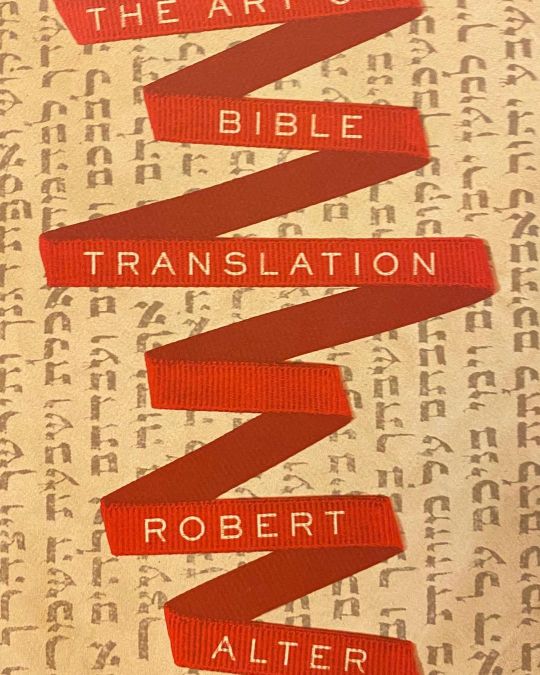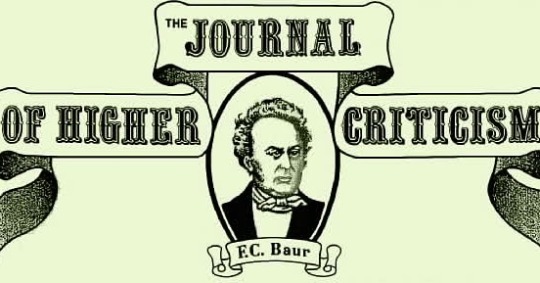#BibleTranslation
Text
Thank you for praying for my recent trip to Serbia. I met with the three Roma Bible translation teams I consult, and a new team starting on a Bible translation for Roma in Albania, and taught them a course on “Biblical Exegesis”. Exegesis is the process of studying and discovering the meaning of a text, in this case the meaning of the original Greek text of the New Testament, and communicating…

View On WordPress
2 notes
·
View notes
Text
#BibleVersions#BibleTranslations#FavoriteBibleVersion#BiblePoll#ChristianCommunity#ScriptureStudy#BibleReading#FaithJourney#WordofGod#SpiritualLife#HolyBible#BibleVersionsPoll#Christianity#FaithCommunity#BibleVerse#ChristianLiving#Scripture#BibleStudy#SpiritualJourney#bible#bible scripture#christ#christian faith#christianlife#bible verse#jesus christ#christian blog#bible question#bible questions
7 notes
·
View notes
Text

#psalm 94:19#bible#christian blog#god#belief in god#faith in god#jesus#belief in jesus#faith in jesus#encouragement#biblequotes#bibletranslations#bible verses#bible truths#christian life#christian faith#christian inspiration#christian living#christians#christianity#christian motivation#christian quotes#keep the faith#make him known
114 notes
·
View notes
Text

How Should We Translate John 1.1: “the Word was God,” or “God was the Word”❓
By (native Greek speaker) Eli Kittim 🎓
John 1.1:
Ἐν ἀρχῇ ἦν ὁ λόγος, καὶ ὁ λόγος ἦν πρὸς
τὸν θεόν, καὶ θεὸς ἦν ὁ λόγος.
John 1.1 is often broken down into 3 phrases:
Phrase 1: Ἐν ἀρχῇ ἦν ὁ λόγος
Phrase 2: καὶ ὁ λόγος ἦν πρὸς τὸν θεόν
Phrase 3: καὶ θεὸς ἦν ὁ λόγος.
From the outset, before they even consider the process of biblical interpretation and exegesis, textual critics and Greek scholars set out to produce a faithful *translation* of the original Greek New Testament. Bear in mind that the processes of translation and interpretation are not the same. We expect the translation committees to translate (not to interpret) the text!
Therefore, a literal and accurate translation of the Greek language should correctly translate the last phrase of Jn 1.1 as “God was the word.” In other words, the third phrase of Jn 1.1 (καὶ θεὸς ἦν ὁ λόγος) should be translated exactly as it was written in the original Greek (for emphasis), not rearranged and reassembled (in the target language) as we would wish it would be. In the original Greek, the text doesn’t actually say that “the Word was God,” as most modern translations maintain:
That’s an interpretation❗️
Rather, the original Greek New Testament says that “God was the Word”! So, the *interpretative* rearrangement is forcing the critical reader to read it backwards, which neglects the emphasis of the word order in the original Greek. It’s as if we were told to read Hebrew backwards, from left to right. What is more, the third phrase of John 1.1 doesn’t actually say ὁ λόγος ἦν (the word was). It says θεὸς ἦν (God was). If the text wanted to emphasize that “the word was God,” the phrase would have been: καὶ ὁ λόγος ἦν θεὸς. It would have been written as follows:
Ἐν ἀρχῇ ἦν ὁ λόγος, καὶ ὁ λόγος ἦν πρὸς
τὸν θεόν, καὶ ὁ λόγος ἦν θεὸς.
But that’s not what it says! To try to manipulate what the original Greek New Testament is actually emphasizing——by rearranging or *reinterpreting* it during the translation process——is equivalent to editing and, therefore, corrupting the “inspired” text.
Admittedly, the third phrase of Jn 1.1 is somewhat of a Gestalt configuration in which different *meanings* can arise depending on the angle from which it is viewed. One could make the *interpretative* argument that the original phrase “God was the Word” might be equivalent to or interchangeable with “the Word was God.” In other words, on an *exegetical* level, one could make the case that the phrase “the Word was God” might be the converse of “God was the Word.” I don’t deny that possibility on grammatical grounds. That is certainly worthy of exegetical consideration. But when we’re initially *translating* the text, we shouldn’t be interested in theories of exegesis. Rather, we should be entirely focused on producing a faithful translation, which precedes interpretation and subsequent theological ramifications.
In *interpreting* the third phrase of Jn 1.1, many textual scholars typically reverse the word-order of the original Greek phrase (via a grammatical rule) so that we’re forced to read the words backwards. According to this rule, we can determine the *subject* of a phrase if a noun falls into one of the following categories: a) if it’s a proper name; b) if it’s preceded by an article; or c) if it’s a personal pronoun. However, in contradistinction to this grammatical rule, θεὸς can actually be the subject that precedes the verb ἦν (here, a form of "to be"), while λόγος can be the predicate nominative. On the other hand, in order to identify θεὸς as the predicate nominative and λόγος as the subject, one has to invoke what is known as the “Subset Proposition" rule, or the "Convertible Proposition" rule. In other words, this alteration involves a complex set of esoteric grammatical assumptions and decisions which essentially turn the text upside down.
By contrast, the straightforward way of reading the text seems to be the smoothest and the most natural. Not to mention that the phrase “God was the Word” is actually a faithful translation, whereas the phrase “the Word was God” is merely an *interpretation.* I’m not arguing that the phrase “the Word was God” is a wrong interpretation. I’m arguing that it’s a wrong translation! In the critical edition, we must always let the reader know what the text ACTUALLY says, not our INTERPRETATION of what we think it might mean. That can go in the commentary section. In translating a text——if the word-order of the original Greek doesn’t make any sense——translators are allowed to rearrange the words in order for it to make sense. But this exception to the rule doesn’t apply here because the original Greek makes perfect sense! Therefore, our decision to abandon our fidelity to the lexical details and grammatical structures of the Greek New Testament makes us no better than the scribes who corrupted it.
Moreover, the decision to change the *meaning* of the text (or to *reinterpret* it) is done for obvious theological reasons. Christian translators have a theological axe to grind. In order to validate and uphold the Trinity, they want to maintain the *distinction* between God the Father (the first person of the Trinity) and the Word of God (the second person of the Trinity). Hence why they deliberately *translate* the last part of Jn 1.1 backwards. Because if they were to translate it as the author intended it, namely, that “God was the word,” it might give the wrong impression that there’s no distinction between the Father and the Word. However, the third phrase of Jn 1.1 is not necessarily making a *modalistic* theological claim that there’s no distinction between the Father and the Word. Rather, since the second phrase (καὶ ὁ λόγος ἦν πρὸς τὸν θεόν) clearly distinguished the two persons of the Trinity, the third phrase establishes their *ontological* unity by affirming that God was not simply separate from the Word, but that God himself was, in fact, the Word per se! After all, the first and second persons of the Trinity share one homoousion (essence): “I and the Father are one” (Jn 10.30)!
At any rate, this *interpretation* has become so wide spread, to such an extent that it has become a dogmatic and systematic standard, not only overriding or supplanting the original *translation* but also prompting modern translations to follow suit. It’s a case of special pleading where an *interpretation* has supplanted a *translation*!
However, there are many credible Bible translations that *translate* the last phrase of Jn 1.1 as “God was the Word”:
Coverdale Bible of 1535
In the begynnynge was the worde, and the
worde was with God, and God was ye
worde.
Smith's Literal Translation
In the beginning was the Word, and the
Word was with God, and God was the Word.
Literal Emphasis Translation
In the beginning was the Word, and the
Word was with God, and God was the Word.
Catholic Public Domain Version
In the beginning was the Word, and the
Word was with God, and God was the Word.
Lamsa Bible
THE Word was in the beginning, and that
very Word was with God, and God was that
Word.
Aramaic New Covenant: In the beginning
the Word having been and the Word having
been unto God and God having been the
Word.
Concordant Literal New Testament: In the
beginning was the word, and the word was
toward God, and God was the word.
Coptic Version of the New Testament: In
(the) beginning was the Word, and the Word
was with God, and God was the Word.
Great Bible (Cranmer 1539): In the
begynnynge was the worde, and the worde
was wyth God: and God was the worde.
New English Bible: When all things began,
the Word already was. The Word dwelt with
God, and what God was, the Word was.
Revised English Bible: In the beginning the
Word already was. The Word was in God’s
presence, and what God was, the Word
was.
Today’s English New Testament: In the
beginning was the Logos. And the Logos
was with God. And God was the Logos.
The Wyclif Translation (by John Wycliffe): In
the bigynnynge was the word and the word
was at god, and god was the word.
Latin Vulgate: in principio erat Verbum et
Verbum erat apud Deum et Deus erat
Verbum.
Vulgate translation: in the beginning was
the Word and the Word was with God and
God was the Word.
See also:
Was the Word “God” or “a god” in John 1.1❓
#greektranslations#Greek linguistics#GreekPhilology#Βιβλικήμελέτη#John1v1#theWordwasGod#GodwastheWord#θεὸςἦνὁλόγος#biblicalinterpretation#ελικιτίμ#ModalisticMonarchianism#trinity#biblicalgreekgrammar#koine greek#το_μικρο_βιβλίο_της_αποκάλυψης#εκ#GreekNewTestament#ek#Bibletranslations#Bibleversions#the little book of revelation#elikittim#homoousion#john10v30#biblestudy#authorialintention#biblicalexegesis#ontologicalunity#textual criticism#theologicalbias
4 notes
·
View notes
Photo

Just got this... looks like an instant page-turner. #books #HebrewBible #BiblicalLanguages #TheBible #BibleTranslation https://www.instagram.com/p/CHWiCImAxhi/?igshid=1lx2nrcjwjvf3
2 notes
·
View notes
Photo

#Repost @wycliffeglobal (@get_repost) ・・・ The new Scripture Access Statistics are here! Click the link in our bio for more info. As we celebrate the milestone of translated Scripture in more than 3350 languages, we celebrate that God is accomplishing His mission through His power and through partnership. More mission organisations, churches and Christian communities are becoming involved in the ministry of Bible translation. At least 1.5 billion people do not have the full Bible available in their first language. Over 700 million of these have the New Testament; others have portions or at least some level of translation or preparatory work begun. As of October 1, 2018, over 180 million people, using 1879 spoken languages and 284 sign languages, are likely to need some form of Bible translation to begin. There is known active translation and/or linguistic development happening in 2659 languages across more than 170 countries. . . . . #bibletranslation #linguistics #wycliffe (em Missão ALEM - Associação Linguística Evangélica Missionária) https://www.instagram.com/p/BpS_1fHnOZv/?utm_source=ig_tumblr_share&igshid=wj7t3mpjspuj
1 note
·
View note
Photo

"Your words are so powerful that they can kill or give life." We take the power of the spoken word too lightly. Our jobs, marriages, children & their behaviour, churches and spiritual health are greatly influenced by what we say. Many people continue to be plagued with problems simply because of what they say. On a side note, The Passion Translation is something I have recently been introduced to. Although I consider it more as a paraphrase, but better than the Message, there are some verses I like the simplicity of. #bible #biblestudy #bibletranslation #words #spoken #power #kill #life #death #encourage #wisdom #inspiration #wisdom #life
2 notes
·
View notes
Photo

Listening to bird songs. The make such beautiful sounds and bring enjoyment to those who listen. Hearing them brought this scripture to mind. “Look at the birds of the air; they do not sow or reap or store away in barns, and yet your heavenly Father feeds them. Are you not much more valuable than they?” Matthew 6:26 NIV https://www.bible.com/111/mat.6.26.niv “Now den, leh we study bout de bod dem wa fly roun. Dey ain plant no seed, needa geda crop. Dey ain pit op no crop een de conehouse. Stillyet, oona Fada een heaben da feed um. Oona way mo walyable den dem bod, ainty?” Matthew 6:26 GUL https://www.bible.com/585/mat.6.26.gul #birdsong #birdsongs #birds #birdsofinstagram #trees #treesofinstagram #bible #bibleverse #scripture #scriptureoftheday #gullahlanguage #gullahgeechee #bibletranslation #godsword #wordsofjesus (at Morning Glory Homestead) https://www.instagram.com/p/CPPFxzJBpZl/?utm_medium=tumblr
#birdsong#birdsongs#birds#birdsofinstagram#trees#treesofinstagram#bible#bibleverse#scripture#scriptureoftheday#gullahlanguage#gullahgeechee#bibletranslation#godsword#wordsofjesus
0 notes
Video
#Gzt #Generationztranslation #Bibletranslation #bibletranslations @heavennn_jz @daughterofthestarcreator_ @aaron.erp @chaelam_02 https://www.instagram.com/p/CGEaVujjf4l/?igshid=h6jt9ww778tt
0 notes
Text
Ask the Lord of the harvest (Luke 10:2)
“And [Jesus] said to them, ‘The harvest is plentiful, but the laborers are few. Therefore pray earnestly to the Lord of the harvest to send out laborers into his harvest.’
When we translate the Bible for Roma, we try to make sure that the translations are accurate and clear. One of the issues we had to think through when we translated Luke 10:2 was the use of “And” at the beginning of the…

View On WordPress
0 notes
Photo

What a joy it was to be part of a special #prayermeeting with the wonderful team at @wycliffeuk! #Wycliffe does such amazing work #aroundtheworld to reach countries where #thebible hasn’t been translated yet. We must keep praying hard for the team’s sterling work to continue even during this difficult season. - - - #praisejesus #keeppraying #wycliffebibletranslators #praytogether #bibletranslation #spreadthegospel #goodnews (at Manchester, United Kingdom) https://www.instagram.com/p/B_4gbOKnBYb/?igshid=c135i1gpw1wj
#prayermeeting#wycliffe#aroundtheworld#thebible#praisejesus#keeppraying#wycliffebibletranslators#praytogether#bibletranslation#spreadthegospel#goodnews
0 notes
Photo

Malakoi and Arsenokoitai are the two Greek expressions found in the Bible, combined to translate as “homosexual” in the 1946/1952 RSV verses of 1st Corinthians 6: 9-10. That was the first time in history the word “homosexual” appeared in the Bible, in any language. What do these words mean and how were they translated in the past? How did this translation play a role in proceeding modern translations of the Bible? COMING SOON: '1946: THE TRANSLATION THAT SHIFTED A CULTURE' documentary answers these questions and more. Join us on our quest for Biblical Truth. Follow us @1946themovie to learn more and/or DM is to get involved... . . . #homoseuxal #thebible #sacredweapon #history #lgbtq #translation #sexuality #god #gaychristian #gay #rsvbible #bibletranslation #badtheology #badtheologykills #chosen #theology #traditionalist #godlovesgays #lgbtqchristian #truth #seekingtruth #justicewarriors #documentary #justice #lgbtqandthebible #lgbtqandthechurch https://www.instagram.com/p/B_kUBIYFv9j/?igshid=dsg01z356q2u
#homoseuxal#thebible#sacredweapon#history#lgbtq#translation#sexuality#god#gaychristian#gay#rsvbible#bibletranslation#badtheology#badtheologykills#chosen#theology#traditionalist#godlovesgays#lgbtqchristian#truth#seekingtruth#justicewarriors#documentary#justice#lgbtqandthebible#lgbtqandthechurch
0 notes
Text

“For the Lord is good. His unfailing love continues forever, and his faithfulness continues to each generation.”
—Psalm 100:5 (NLT)
“When you're not okay, God is still good. God is good even if your heart hurts, even if your whole world seems to be breaking. God's goodness doesn't depend on your situation. You can continue trusting Him despite your circumstance. He is still good even when life is not.”
—Joena San Diego
Amen! 🙌
#psalm 100:5#god is good#god is good all the time#joena san diego#bible#christian blog#god#belief in god#faith in god#biblequotes#bibletranslations#encouragement#jesus#belief in jesus#faith in jesus#christianity#christian life#christian quotes#bible verses#bible truths#bible scripture#christians#christian inspiration#christian faith#christian living#christian motivation#keep the faith#make him known
133 notes
·
View notes
Text
This is the PDF of my article——published in the Journal of Higher Criticism, volume 13, number 3 (Fall 2018)——entitled, “The Birth, Death, and Resurrection of Christ According to the Greek New Testament Epistles.”

#jstor#libguides#internet archive#google books#google scholar#open access journals#open access articles#bible studies#biblical studies journals#journal of higher criticism#elikittim#sage journals#tyndale#bible exegesis#bibletranslation#biblical languages#biblical eschatology#critical research#bible prophecy#bible interpretation#biblical hermeneutics#historical jesus#publications#academic journals#scholarly journals#mythicist#new testament epistles#Critical commentary#logos talk#library guides
2 notes
·
View notes
Photo

Ouch mike winger .... lol #bethel #bible #bibletranslation #what #christian #christianmemes #apologetics #charasmatic #pentacostal #hyperpentacostal #billjohnson https://www.instagram.com/p/B7Wt1velZKZ/?igshid=1a1evrvjrxqc7
#bethel#bible#bibletranslation#what#christian#christianmemes#apologetics#charasmatic#pentacostal#hyperpentacostal#billjohnson
0 notes
Photo

2 Samuel 22 37: Thou hast enlarged my steps under me; so that my feet did not slip. என் கால்கள் வழுவாதபடிக்கு நான் நடக்கிற வழியை அகலமாக்கினீர். Thank you Jesus 🙏 💐💐💐💐💐💐💐💐💐💐💐💐💐💐💐💐💐💐💐💐 #biblename #biblevers #biblepassages #bibleplanner #biblepost #biblepraise #biblemessagetoday #Biblepromises #bibleversesoftheday #biblepower #bibletour #Bibledog #biblecampaign #biblecharacter #biblethumper #bibletranslation #biblegospel #BibleGirlScripture #bibleversechallenge #biblegirl #biblegems #BibleGeek #Biblesriptures #biblesfornepal #biblecyst #bibledailyverse #BibleFaithChurch #biblee #bibledogs #biblecake (at Incredible Kanyakumari) https://www.instagram.com/p/B5fJM3wgMF3/?igshid=1inajiyy3gu47
#biblename#biblevers#biblepassages#bibleplanner#biblepost#biblepraise#biblemessagetoday#biblepromises#bibleversesoftheday#biblepower#bibletour#bibledog#biblecampaign#biblecharacter#biblethumper#bibletranslation#biblegospel#biblegirlscripture#bibleversechallenge#biblegirl#biblegems#biblegeek#biblesriptures#biblesfornepal#biblecyst#bibledailyverse#biblefaithchurch#biblee#bibledogs#biblecake
0 notes